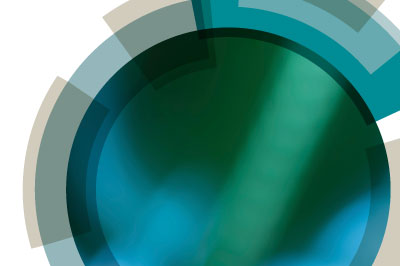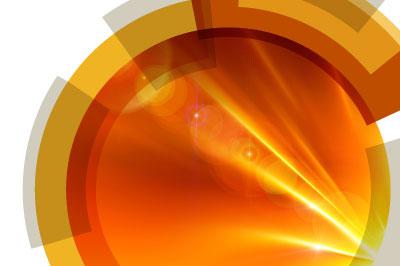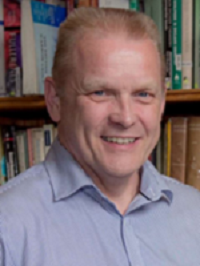 Tom Welton, Imperial College London, United Kingdom
Tom Welton, Imperial College London, United Kingdom
Tom Welton is Professor of Sustainable Chemistry at Imperial College London, and Editor-in-Chief of RSC Sustainability. He has published over 150 papers and has received several awards, including various lectureships, was made a Fellow of the Royal Society of Chemistry (FRSC, 2007) and Officer in the Order of the British Empire (OBE, 2017).
From 2020 to 2022 he served as president of the Royal Society of Chemistry. He is a vocal champion of inclusion and diversity in the chemical sciences.
Tom's research focusses on Sustainable and Green Chemistry, aiming to make related industries more environmentally and economically sustainable. Throughout his career, his work has focused on the use of ionic liquids with uses in organic, inorganic, and physical chemistry.
He is interested in the fundamental properties of ionic liquids and how they can be used as alternative solvents or electrolytes. He also works on the clean synthesis and processing of biomass-derived polymers to replace petrochemical-based plastics and understands how ionic liquids can play a role in making these processes more sustainable.
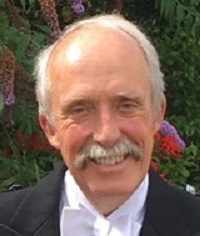 David Cole-Hamilton, University of St Andrews, United Kingdom
David Cole-Hamilton, University of St Andrews, United Kingdom
Following degrees (BSc and PhD) at Edinburgh University, David Cole-Hamilton worked with Nobel Laureate, Sir Geoffrey Wilkinson at Imperial College, where he developed a strong interest in organometallic chemistry and especially homogeneous catalysis. His independent career started at Liverpool University (Lecturer and Senior Lecturer) before moving to be a Professor of Chemistry at the University of St. Andrews in 1985. He became Emeritus in 2014.
The majority of his work has been on the applications of organometallic chemistry to solving problems in homogeneous catalysis and materials chemistry including nanomaterials.
David's most recent work has been concerned with making commodity and fine chemicals including plastics and pharmaceuticals from bio-derived waste oils that are by-products of other processes such as food production or paper manufacturing. In this way, desirable effect chemicals can be made from biomass without using land that would otherwise be used for food production.
He has published more than 400 articles and patents with an h-index of 50. Particularly relevant to the scope of RSC Sustainability is The Role of Chemists and Chemical Engineers in a Sustainable World, in which he shows how chemistry can be used to tackle all of the 17 United Nations Sustainable Development Goals (SDGs).
He has won a number of prizes from the Royal Society of Chemistry as well as 5 prizes for teaching. In 2017 he was awarded the Alwin Mittasch Prize by the German Catalysis Society.
David is a past President of the European Chemical Society (EuChemS) having been President from 2013-7. This gave him extensive contact with chemical societies and policymakers throughout Europe. On behalf of EuChemS, he led a team celebrating the International Year of the Periodic Table, which developed a new version of the Periodic Table highlighting element availability and vulnerability as well as which elements can come from conflict resources and which appear in smartphones.
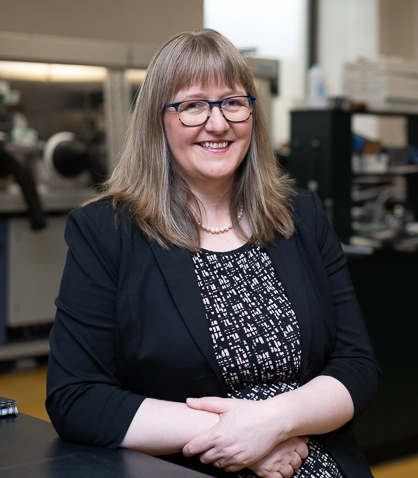 Francesca Kerton, Memorial University of Newfoundland, Canada, Canada
Francesca Kerton, Memorial University of Newfoundland, Canada, Canada
Francesca Kerton is a professor of Chemistry at Memorial University of Newfoundland and has a global reputation for her innovative research on sustainable chemistry related to the oceans.
She is a Fellow of the Royal Society of Chemistry and is a member of many scientific panels and committees worldwide. She currently chairs IUPAC’s standing committee on Chemical Research Applied to World Needs and is chair of the 27th Annual Green Chemistry & Engineering Conference. She is an Advisory Board member for Reaction Chemistry & Engineering.
Francesca obtained her PhD in Chemistry at the University of Sussex and was a postdoctoral research associate at the University of British Columbia. In addition to authoring over 70 journal articles, she has contributed several books and book chapters on aspects of green chemistry including “Alternative Solvents for Green Chemistry”.
Her current research group is focused on developing environmentally friendly ways to process bio-sourced molecules and materials, catalysis and sustainable polymers. She also performs research in the area of carbon dioxide utilization and is part of an NSERC-funded training network “Centre for Innovation and Research on Carbon Dioxide Utilization in Industrial Technologies”. She received the Canadian Green Chemistry and Engineering Award in 2019.
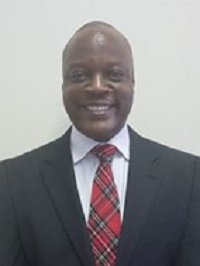 Vincent Nyamori, University of KwaZulu-Natal, South Africa
Vincent Nyamori, University of KwaZulu-Natal, South Africa
Vincent Nyamori is a Professor at the University of KwaZulu-Natal (UKZN), South Africa. He is the Coordinator of the UKZN Nanotechnology Platform, an Executive and Council member of the South African Chemical Institute (SACI), and a former SACI President. He is a Fellow of SACI, a Fellow of the Royal Society of Chemistry, and an Associate Editor for RSC Sustainability.
He is South Africa’s representative to the Federation of the Commonwealth Chemical Sciences Societies. Prof. Nyamori received his PhD from Nelson Mandela Metropolitan University and was a Postdoctoral Fellow at the University of the Witwatersrand.
His research interests include Green and Sustainable Chemistry, particularly ionic liquids and renewable materials. He has extended his interest to Nanotechnology and Materials Science to develop advanced nanomaterials for water remediation, catalysis and solar energy devices.
He has presented his work at numerous conferences and published at least 150 journal articles, three book chapters, and one patent. In 2020, he was the SACI Merck Medal awardee for a paper published in the South African Journal of Chemistry, adjudged then to have made the most significant contribution to the discipline. He has received the UKZN Top 30 Published Researchers’ Award and the Vice-Chancellor’s Research Award, recognising his exceptional research activities.
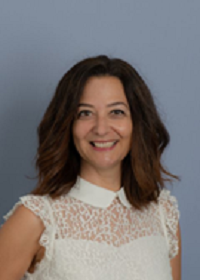 Cristina Pozo-Gonzalo, Deakin University, Australia
Cristina Pozo-Gonzalo, Deakin University, Australia
Dr. Pozo-Gonzalo works as a Senior Research Fellow at the Institute for Frontier Materials (IFM), Deakin University in Melbourne (Australia). She attained her Bachelor of Science and honours at the University of Zaragoza (Spain). After graduating, she received her PhD degree in Chemistry from the University of Manchester (United Kingdom) on the electrochemical synthesis of Conducting Polymers.
In 2004, she joined the Centre for Electrochemical Technologies in San Sebastian (Spain) as the Head of the Electrooptical unit where she stayed for 7 years, managing a total of 23 projects. After moving to Australia, she has been working with Prof. Alan Bond at Monash University and in 2012 she joined Deakin University where she has been working in reversible metal-air batteries with advanced electrolytes, ionic liquids funded by ARC Centre of Excellence for Electromaterials Science (ACES).
Currently, Cristina leads research activities in sustainable energy storage technologies covering the circular economy (CE) model from materials redesign up to critical metals recovery using solvometallurgy and electrochemistry with important benefits for the environment. She has led IFM’s development of an energy research node on circular economy (CE) for energy storage and generation and designed the Institute’s CE road map.
She is a board member for the journal Sustainable Chemistry, Review editor of Frontiers in Chemistry in the electrochemistry division and Associate Editor for RSC Sustainability. During her research career, she has published 97 publications, including 4 patents and 3 book chapters and managed 33 projects as chief investigator.
 Martin Prechtl, University of Lisbon, Portugal
Martin Prechtl, University of Lisbon, Portugal
Martin Prechtl works at the Centro de Química Estrutural (CQE) at the Instituto Superior Técnico of the University of Lisbon (IST-UL, Portugal). There he completed the examination for the Portuguese Habilitation in 2021 and received the “Agregação” for Chemistry (Título do Agregado).
Previously he has been already an Associated Researcher at the CQE-IST-UL since 2017. Moreover, he acted as a Professor of Chemistry at Roskilde University (2018-2020, Denmark). And he has been working as Independent Group Leader at the University of Cologne (Germany) from 2010 to 2020, where he obtained the German Habilitation in 2015 and he holds the Venia Legendi in Inorganic Chemistry ("Privatdozent").
Martin works on the development of molecular and nanoscale catalyst materials for application in organic synthesis and hydrogen/energy storage, with a focus on selective hydrogenation and dehydrogenation reactions. This includes reactions in water, ionic liquids and multi-phase solvent systems. He gave numerous oral presentations (~140) at major (inter)national conferences and at prestigious research institutes and published >70 articles and book chapters. He received several awards and titles, among those the NRW Scientist Returnee Award 2009, the Ernst-Haage-Prize 2014 (Max-Planck Society), FRSC (2016) and Humboldtian (2007). He acted previously as Associate Editor for RSC Advances from 2016 to 2020.
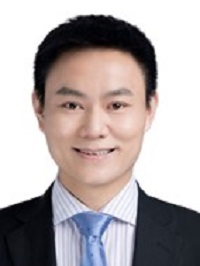 Zhenyu Sun, Beijing University of Chemical Technology, China
Zhenyu Sun, Beijing University of Chemical Technology, China
Zhenyu Sun is a Professor of Chemical Engineering at the Beijing University of Chemical Technology (BUCT), China. He is the director of Department of Materials and Chemical Engineering of BUCT and has published over 160 papers.
He obtained his PhD in Physical Chemistry at the Institute of Chemistry, Chinese Academy of Sciences in 2006. Following this, he was a postdoctoral researcher at Trinity College, University of Dublin, Ireland for two years. He completed an Alexander Humboldt research fellowship at Ruhr University Bochum, Germany in 2013 working on "fancy carbon materials". From 2014 to 2015, he worked as a postdoctoral research fellow at the University of Oxford on metathesis reactions using heterogeneous catalysts. His current research focuses on sustainable and green synthesis of hydrocarbons and oxygenates from CO2 reduction reaction, and NH3 from N2 reduction reaction via photo-/electrocatalysis, including the design and synthesis of catalysts as well as an understanding of reaction mechanisms. His interests also include other reactions involved in renewable energy conversion and utilization.
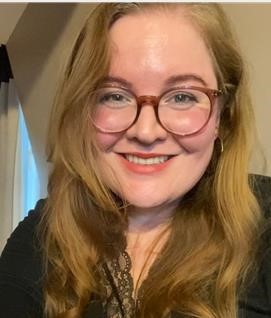 Emma Eley, Royal Society of Chemistry, United Kingdom
Emma Eley, Royal Society of Chemistry, United Kingdom
Emma is Executive Editor for the Royal Society of Chemistry’s Open Access journals with responsibility for RSC Sustainability, EES Catalysis, Environmental Science: Advances, Environmental Science: Atmospheres and Energy Advances.
As Executive Editor she leads the Editorial team responsible for the operational, strategic, and development aspects of the journals, working closely with the journals’ Editorial Boards and the wider research community. Emma has over 12 years’ experience within the STM publishing industry after having obtained her 1st class Masters degree in Chemistry from Cardiff University (Prifysgol Caerdydd), Wales.
-
Agnieszka Brandt-Talbot
Imperial College London, United Kingdom
-
Barbara Kasprzyk-Hordern
University of Bath, United Kingdom














